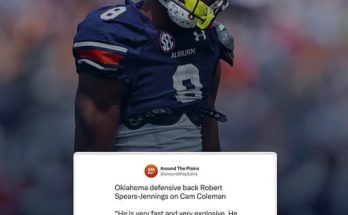In a historic and highly debated announcement from ESPN, Duke University legend Christian Laettner has been officially named the Greatest of All Time in men’s college basketball. Surpassing iconic figures such as Austin Carr of Notre Dame, Kenny Walker of Kentucky, and Jerry Lucas of Ohio State, Laettner’s crowning as the GOAT has reignited conversation across the college basketball landscape, celebrating a career that continues to defy the passage of time.
Laettner’s college basketball legacy is nothing short of legendary. During his four-year career at Duke from 1988 to 1992, he helped redefine excellence in the NCAA. Under head coach Mike Krzyzewski, Laettner led the Blue Devils to four consecutive Final Fours and back-to-back national championships in 1991 and 1992. He is the only player in history to start in four straight Final Fours, a feat that has never been matched. His ability to perform in the clutch and his knack for big-time plays turned him into one of the most iconic and polarizing figures in the history of the sport.
Most fans instantly recall “The Shot” — Laettner’s legendary game-winning jumper against Kentucky in the 1992 Elite Eight. With just 2.1 seconds left in overtime, Grant Hill launched a 79-foot pass to Laettner, who caught the ball at the free-throw line, faked right, turned left, and drained a buzzer-beater to lift Duke to a 104-103 win. That single play has been replayed countless times in March Madness montages and remains etched into the fabric of the sport.
But Laettner was far more than a single moment. His career numbers speak volumes: he scored 2,460 points, grabbed 1,149 rebounds, and recorded 145 blocks while shooting nearly 58 percent from the field and 49 percent from beyond the arc. He remains the all-time leading scorer in NCAA Tournament history with 407 points in 23 games. He was named the NCAA Final Four Most Outstanding Player in 1991 and earned first-team All-American honors twice.
Despite playing in an era stacked with future NBA talent, Laettner consistently outshined his competition. While others chose to leave for the NBA early, Laettner stayed for all four years, embracing the college experience and elevating Duke from a strong program to a national powerhouse. His combination of skill, leadership, mental toughness, and uncanny poise in pressure situations is what set him apart then—and why he still stands alone today.
Austin Carr, a scoring machine for Notre Dame in the early 1970s, was known for his explosive offensive performances, including a still-standing NCAA Tournament single-game scoring record of 61 points. Kenny “Sky” Walker was a human highlight reel for Kentucky, a two-time SEC Player of the Year who dominated with his athleticism and flair. Jerry Lucas, a two-time national player of the year and NCAA champion with Ohio State, was the prototype of a modern big man before the game evolved.
Each of those names brought something special to the game and changed the way basketball was played at their respective programs. But Laettner brought winning—and he brought it consistently. He was the glue of one of the greatest dynasties in college basketball history, not just a scorer or a rebounder, but a leader who demanded excellence from his teammates and delivered it himself.
The voting process, conducted by ESPN through a combination of fan votes, expert panels, and statistical evaluation, took into account performance, impact, accolades, and longevity. While the debate for the GOAT is inherently subjective and laden with regional biases, Laettner’s overall resume was simply too strong to ignore. His career intersected with some of the most competitive eras in NCAA history, and he rose to the occasion time and again.
Interestingly, Laettner has long held a unique place in basketball lore. Despite his resume, he was often disliked by opposing fans for his fiery demeanor and perceived arrogance. The famous “I Hate Christian Laettner” documentary produced by ESPN explored how he became the ultimate villain in college hoops. But love him or hate him, no one could deny his greatness. He was the player fans loved to hate and feared to face.
Even decades after his college days, Laettner’s legacy has only grown. His enshrinement on the 1992 Dream Team—the only collegiate player selected to play alongside legends like Michael Jordan, Magic Johnson, and Larry Bird—was a testament to his impact on the sport. It was a rare honor that validated his college career on a global stage.
Many of today’s rising stars owe a debt of gratitude to Laettner for paving the way. His versatility as a big man who could stretch the floor and hit threes was ahead of its time, resembling the skillset now prized in modern basketball. Players like Kevin Durant, Kristaps Porzingis, and Chet Holmgren reflect an evolution Laettner helped spark.
Reactions to the ESPN announcement have poured in from across the basketball world. Coach K, who remains one of Laettner’s strongest advocates, praised the decision, calling him “the greatest winner I’ve ever coached.” Former rivals have acknowledged his dominance, and many former teammates have taken to social media to celebrate the honor.
In true Laettner fashion, he responded to the accolade with confidence and humility. “I always believed in what we built at Duke and how we did it,” he said in an ESPN interview. “To be mentioned with legends like Carr, Lucas, and Walker is an honor. But this is about more than just me. It’s about my teammates, Coach K, and the fans who pushed us to greatness.”
Still, not everyone agrees with the decision. Some argue that players like Bill Walton, Lew Alcindor (Kareem Abdul-Jabbar), or even more recent stars like Tim Duncan and Tyler Hansbrough deserved greater consideration. Walton led UCLA to two national titles and went 88-2 in his college career. Kareem dominated with three national championships and remains the NCAA tournament’s most efficient scorer. However, ESPN’s process centered more on a blend of longevity, clutch performance, tournament dominance, and overall impact—criteria where Laettner thrived.
What separates Laettner in the end is not just his stats or trophies, but the aura surrounding his time at Duke. He made college basketball must-watch television. He brought the drama, the flair, the excellence. Every March, fans still relive his greatest moments, still debate his greatness, and still measure others against his benchmark.
With this official GOAT title, Christian Laettner’s place in history is more cemented than ever. He was the face of college basketball’s golden era, the standard of excellence for generations to follow, and the ultimate example of how four years in the NCAA can define a legacy for a lifetime. From Durham to the rafters of basketball immortality, the Blue Devil is now the undisputed king.
Christian Laettner didn’t just play the game—he changed it. And now, after decades of debate, the verdict is in: The GOAT is a Blue Devil.



